Contact: rachel@mindfullywired.org | +44 7896609674
Fishing is one of the most dangerous occupations in the world and improving fisher safety is of critical importance to all involved in the seafood industry. This week, five of the largest collaborations in the seafood sector have come together as a meta-coalition to support efforts to improve fisher safety. Those efforts include supporting continued and consistent data collection and analysis of fatalities in the industry, and actions to significantly reduce the risk of future incidents. The information will help understand the drivers behind the unacceptably high death rates, and then to design solutions to those drivers.
The safety of fishers has been a problem for the wild capture seafood industry for many years. Research by the International Labour Organisation (ILO) in 1999, and subsequently by the Food and Agriculture Organisation of the United Nations (FAO), estimated that annual fisher deaths were in the region of 24,000 and 32,000 respectively, or 65 and 87 deaths per day.
However, new research from The Pew Charitable Trusts, in conjunction with the Fish Safety Foundation, estimates that global fisher mortality rates are actually three to four times higher than these previous assessments.
The FAO has included the topic of fisher safety in its agenda for the upcoming Committee on Fisheries meeting, and this meta-coalition are supporting calls for a global mechanism for reporting fatalities alongside targeted and effective safety initiatives based on the data generated, to make the work of fishing safer.
We hope that our intervention will help to ensure that this topic receives the required level of attention by fishing nations and other stakeholders.
“Fishing is and always has been a dangerous occupation but we can do better to reduce the current rate of fatal incidents. We must all work together to improve fisher safety and reduce the number of lives lost at sea. We have delivered a statement to the FAO Committee on Fisheries this week on behalf of multiple industry companies to support the development of a global mechanism to report fatalities at sea. That, in turn, will help understand the drivers behind the dangers and design solutions to improve safety at-sea.” Herman Wisse – Executive Director GSSI
The five groups releasing the statement are Seafood Business for Ocean Stewardship (SeaBOS), the Global Tuna Alliance (GTA), the Global Dialogue on Seafood Traceability (GDST), Sea Pact, and the Global Sustainable Seafood Initiative (GSSI). Taken together, these collaborations include over 150 companies from across the seafood value chain, making this one of the largest seafood industry calls for action on record.
The statement notes:
As a coalition of seafood entities, we are committed to ensuring that the seafood we catch, grow, buy, and sell is responsibly produced without activities such as IUU fishing or modern slavery. As part of these commitments, we recognise that IUU fishing and modern slavery expose fishers to unsafe and harmful working conditions. We have aligned with FAO and the Ocean Panel, along with others, to advocate for the ratification and effective implementation of FAO Port State Measures Agreement and devised other measures to address IUU fishing and modern slavery, which will help to improve fishers’ safety.
Building on the existing national reporting systems already in place, we support the development of a global mechanism throughout the seafood sector that can establish a data collection scheme and repository on global fisher mortality incidents to help with analyses of loss of life in the fishing industry, leading to improved safety initiative development and implementation.
Notes to editors:
The Global Tuna Alliance (GTA) is an independent group of over 50 retailers and tuna supply chain companies that are committed to realising harvest strategies for tuna fisheries, avoidance of IUU products, improved traceability as well as environmental sustainability, and progressing work on human rights in tuna fisheries. Over 30% of the world’s tuna passes through GTA Partners.
Seafood Business for Ocean Stewardship (SeaBOS) is a unique collaboration between scientists and seafood companies across the wild capture, aquaculture and feed production sectors, leading a global transformation towards sustainable seafood production, and improving ocean health. The collaboration has been coordinated by the Stockholm Resilience Centre at Stockholm University. Together, SeaBOS companies represent over 10% of the world’s seafood production and comprise over 600 subsidiary companies globally.
The Global Sustainable Seafood Initiative (GSSI) is a public-private partnership of over 100 retailers, food service companies, seafood supply chain companies, NGOs, and international organizations working together to accelerate the implementation of the UN Sustainable Development Goals. Through its strong relationship with the FAO, GSSI is uniquely positioned to support its Partners in drive forward more sustainable seafood for everyone.
Sea Pact is a group of leading North American Seafood Companies dedicated to driving stewardship and continuous improvement of social, economic, and environmental responsibility throughout the global seafood supply chain.
Global Dialogue on Seafood Traceability (GDST) is an international, business-to-business platform established in 2017 to create the first-ever global industry standards for seafood traceability. More than 60 companies and associations participated in the GDST consensus-based drafting process, with strong participation from around the world, across the supply chain, and at all enterprise sizes.
The Committee on Fisheries (COFI), a subsidiary body of the FAO Council, was established by the FAO Conference in 1965. It is the only global intergovernmental forum where FAO Members meet to review and consider the issues and challenges related to fisheries and aquaculture.
